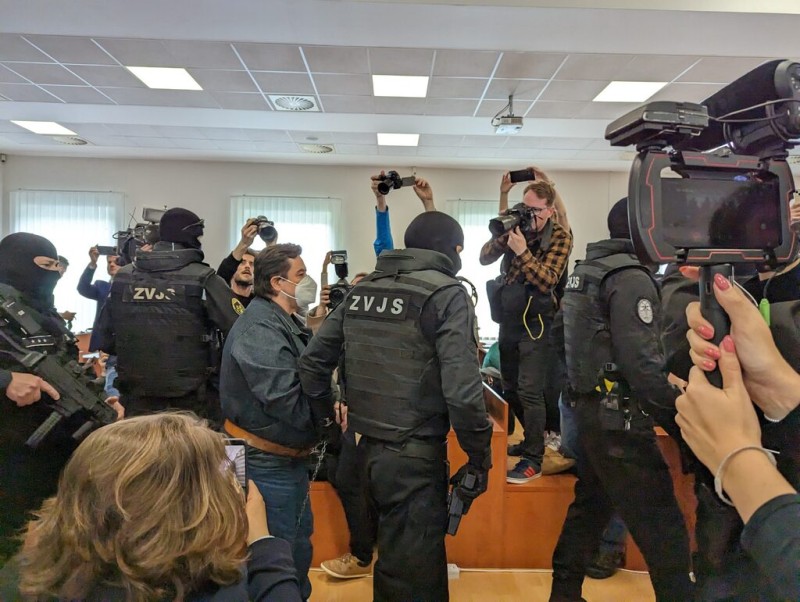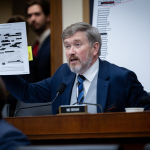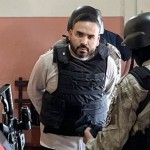Daniel Mikuláš and Matúš Harkabus hoped they would put Marian Kočner, a controversial Slovak businessman, behind bars for ordering the killing of the 27-year-old journalist and his fiancé who were murdered in their house by a hired assassin.
At the time, the killings rocked the country, provoked mass protests and forced Prime Minister Robert Fico to resign.
A long investigation led to the arrest of several people, including Kočner, whom Kuciak had investigated. Two trials later, the court found that Kočner’s associate had hired assassins to get Kuciak out of the way as well as one lawyer and two prosecutors, including Maroš Žilinka who worked at the Office of the Special prosecutor at the time himself, and now serves as the General Prosecutor. Kuciak’s fiancé was collateral damage.
Several people were sent behind bars for ordering, paying or conducting the murder, but not Kočner. The prosecution took the verdict to the Supreme Court.
The case had opened a Pandora box, exposing a corrupt judicial and political system in Slovakia.
However, Fico returned to power and took over as prime minister for the fourth time after his party won the election end of September last year.
His government dissolved the Special Prosecutor's Office that handled the Kuciak case in March.
Peter Kubina, attorney-at-law and advisor to the President of the Slovak Republic on law and justice, who also represents the family of the murdered Ján Kuciak believes that the dissolution of the department and the transfer of the two prosecutors were “both an act of revenge and one of the steps aimed at ensuring impunity and peace for "our people."
But he did not think that the two moves will complicate the Kuciak appeal, “since all the arguments and evidence are on the table of the Court of Appeal and it is now up to it to decide.”
"Whoever gets it will have to do a detailed analysis, study that file. This is very, very time consuming," Harkabus said about handing over the case to another prosecutor back in December 2023, when the Fico government started the process of the dissolution of the Special Prosecutor's Office. "I'm not afraid that a person who wants to torpedo the indictment or something like that will get it. I don’t think so. But I think we can certainly get into a situation where time will be limited," he said.
The two prosecutors working on Kuciak’s case (which was connected at court with the case concerning prepared assasination of other prosecutors, including current General Prosecutor Maroš Žilinka) as well as the one concerning the assassination of the two prosecutors had hoped they would continue going after Kočner but were transferred to Bratislava, 200 kilometers away from their homes to work at the General Prosecutor's Office at cases unrelated to the criminal law. Instead, both resigned.
"I want to assure you that I approached your case where you were the victim in the preparation of your premeditated murder to the best of my knowledge and conscience during the entire time I was active in it... so that the truth about who ordered the murder would come to light," Harkabus reminded Žilinka in his resignation.
But he also accused Žilinka of not creating conditions for this or the Kuciak case to be finished.
"Maybe you don't know about it yourself, because people around you are afraid to tell you, but the interpersonal atmosphere and something we call "organizational culture" during your work at the prosecutor's office, in my - and not only my - opinion, couldn't possibly be more similar to the normalization atmosphere, as those who remember the 70s testify about it," wrote Harkabus, drawing comparison with the atmosphere in the communist Czechoslovakia after the 1968 Soviet occupation of the country, which was characterized by the push on people to remain silent and punished those who in any way fell out of line.
It is not yet known who, instead of Matúš Harkabus and Daniel Mikuláš, will continue to supervise the cases of the murder of a journalist and the conspiration to kill prosecutors.
Kuciak’s case is at the Supreme Court. It will decide on appeals against the decision of the Specialized Criminal Court, which acquitted Marian Kočner. Prosecutors Harkabus and Mikuláš wrote a 115-page appeal against such a verdict. The Supreme Court has not yet scheduled a hearing, but it is estimated that it could make a decision this year.



